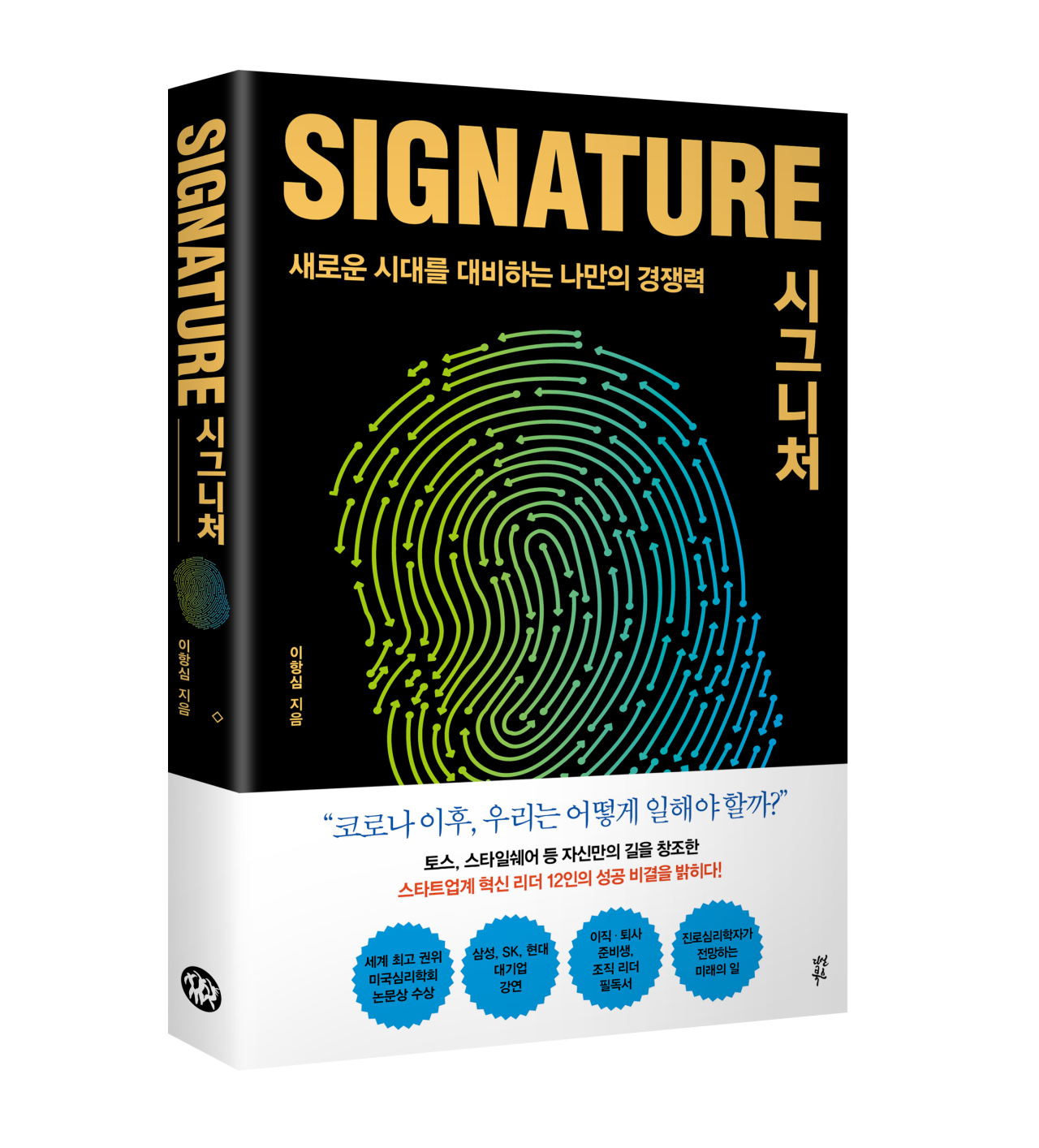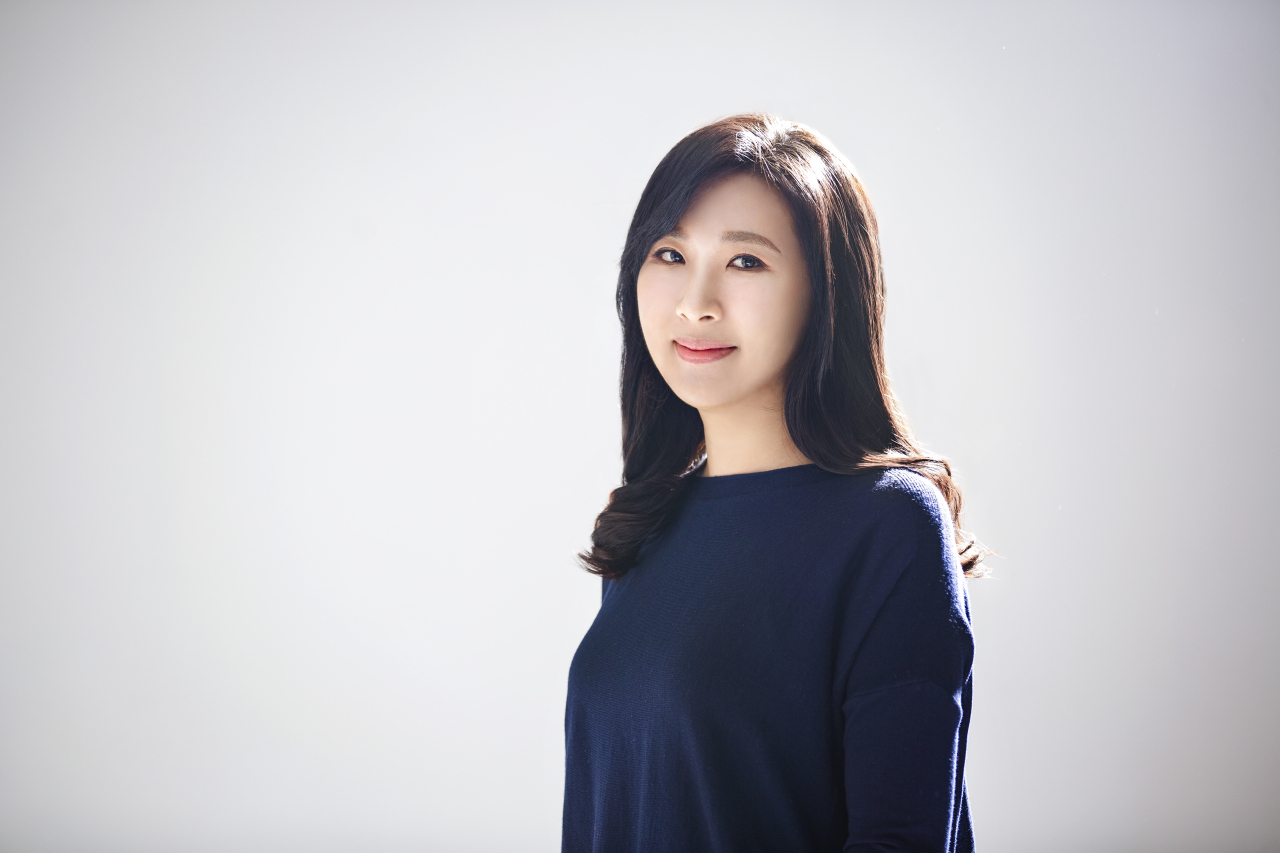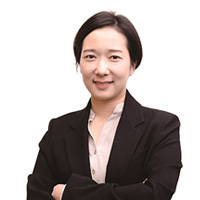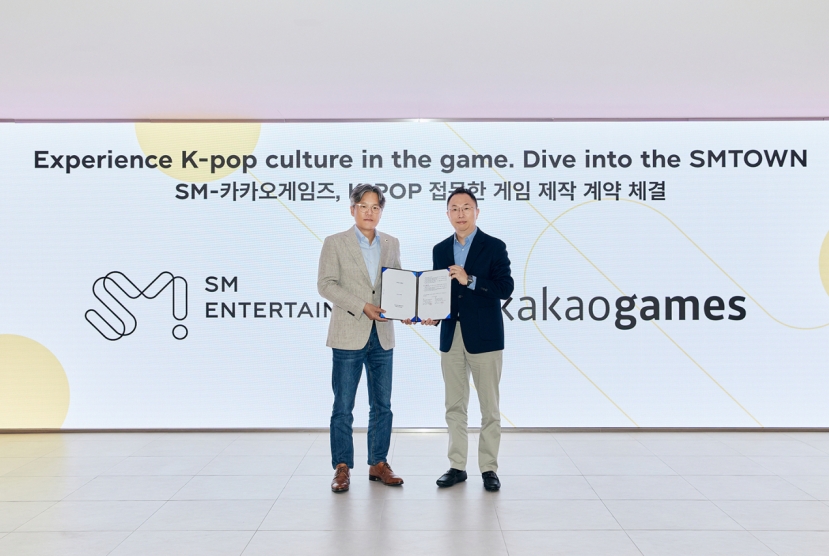
“Signature”
By Lee Hang-shim
(Dasanbooks)
Korean society is at a watershed moment to advance further by accepting the growing demand in diversity propelled by the digital revolution and the sudden outbreak of the COVID-19 pandemic that has brought an unconventional style of life to overall society.
“Signature” tells readers that they need to find their own signature -- or a psychological asset -- that is an unreplaceable strength and differentiates them from others at the workplace and in society in a rapidly changing era, providing practical ideas on how to educe their signature.
The book explores 12 startup innovators who have successfully cultivated their signatures, including Lee Seung-gun, founder of Viva Republica that runs mobile payment service app Toss; Chang Byung-gyu, chairman of Krafton Game Union; and Mark Tetto, a partner in global investment firm TCK and TV personality based in Seoul.
The book is written by Dr. Lee Hang-shim, an associate professor of the graduate school of education at Konkuk University in Seoul. After receiving her Ph.D. degree at the University of Missouri, she worked at Oklahoma State University for three years (2014-2017) on a tenure track.

In 2019, Lee won the Positive Organization Intervention Challenge Finalist Award from the International Positive Psychology Association, a global professional organization for thousands of psychological experts from 70 countries. She is now co-chair of the American Psychological Association‘s international section of Division 17.
The author stresses that one can find their signature within themselves, which is their valuable psychological asset. Based on in-depth interviews of the 12 innovative leaders in the startup industry, the book reveals seven common signatures from them with psychological analysis.
The book suggests that the workplace in Korea -- and Korean society in general -- needs to be better prepared to embrace people’s different signatures to leap further in the post-industrial era, considering the booming digital revolution is rooted in individuals’ desires to reveal their own self, as opposed to the industrial era that had pursued efficiency and standardization.
Lee, however, sees Korean society as being culturally unfavorable in terms of accepting different personal signatures, which is a serious problem that hinders social development.
“In many Western countries, the diversity is visible with different races and cultural diversity,” Lee told The Korea Herald. “In Korea, however, diversity is invisible because we are a homogeneous cultural society, which means people’s different strengths or their own characteristics can be easily neglected.”
Lee’s primary research includes the career development of culturally diverse populations in the workplace. Thanks to her experience of working as a foreign researcher in the US, she acknowledges how much international workers could enrich society by bringing different personal signatures and psychological assets to the workplace.
“Korea is relatively defensive in accepting different cultures, so it can be challenging to work in Korea,” Lee said. “However, I really want to tell them they are actually contributing to Korean society, diversifying the workplace bringing their own personal signatures derived from different cultural backgrounds.”
Lee will kick off a new project called “From Surviving to Thriving in Korea” this year to find out how foreign residents are surviving and thriving in Korea, which will be the cornerstone of the next book she is planning to work on.
“I would like to hear vivid international workers’ working experiences in Korea and learn how our society can support their own ‘signature’ and foster the climate to respect the diversity in Korean society,” Lee said. “If you are interested in the project, please feel free to reach me via email at hangshim@konkuk.ac.kr.”
By Park Yuna (yunapark@heraldcorp.com)








![[KH Explains] How should Korea adjust its trade defenses against Chinese EVs?](http://res.heraldm.com/phpwas/restmb_idxmake.php?idx=644&simg=/content/image/2024/04/15/20240415050562_0.jpg&u=20240415144419)











